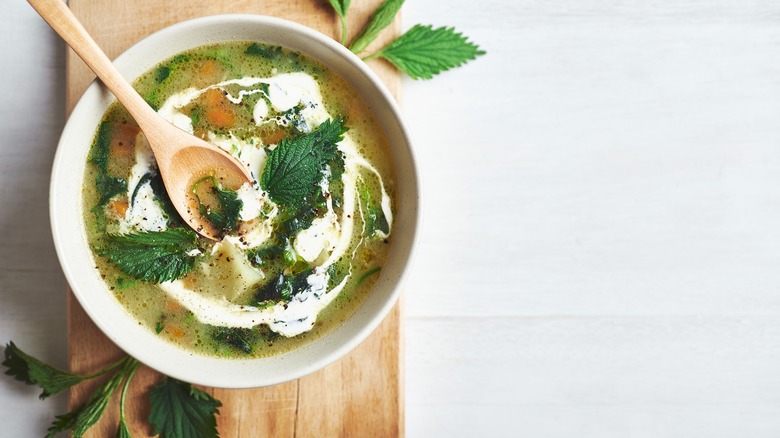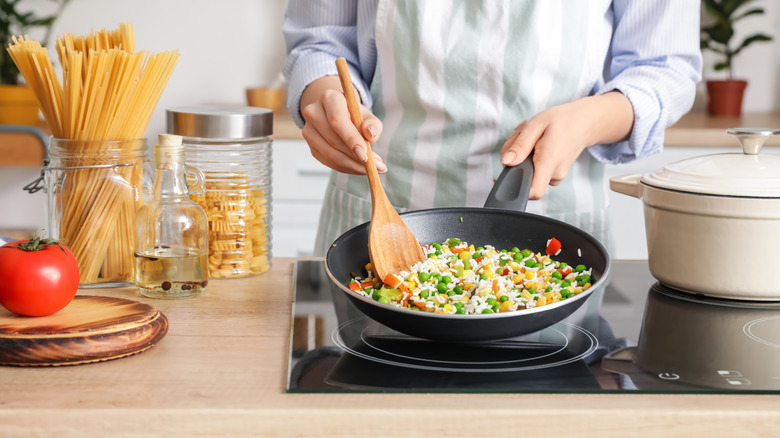Why You Shouldn't Use A Wooden Ladle To Make Soup
There are too many types of soup to count, from cream-based soups and chowders to classic chicken noodle, minestrone, and more, spreading across countless cultures, cuisines, and regions of the world. In fact, it's believed that soup, or some form of food boiled in water or broth, may date back as much as 20,000 years, if not further back to Neanderthal times, according to Esquire.
There is no one right or wrong way to make soup — simply toss ingredients into a pot of water or broth and let the boiling liquid do its job. That being said, there are correct ways to prepare these ingredients, including how to dice meat and vegetables, what cookware to use, and, of course, hygiene and food safety regulations. Making sure bacteria or germs don't contaminate your food is one of the most important aspects, if not the most important aspect, of cooking — The Columbus Dispatch warns that your kitchen is more than likely dirtier than your bathroom. Part of making sure your soups are food safe is the utensils you use to make and serve them.
Food safety concerns
There are many reasons home cooks and professional chefs alike love using wooden utensils. Not only do they look and feel more classic than plastic or silicone utensils, but they're gentle on your pots and pans — especially nonstick — and last a long time if cared for properly (via Rainforest Bowls).
However, that assumes you take care of them, including using them appropriately. When exposed to high temperatures and long-term contact with liquids, the wood grain will expand. This can let bacteria set into the actual grain and contaminate all future foods you cook using that spoon — this is why you can't run wooden utensils through the dishwasher (via Real Simple).
Not only that, but wood will stain when in contact with highly pigmented food, especially in a vessel like soup. This is more of an aesthetic issue than a hygiene or food safety concern, but you still don't want to ruin the clean look of your wooden utensils. Instead, use heat-safe silicone or metal utensils and ladles when cooking and serving soup, making sure to only use silicone on pans or pots with nonstick coating.

